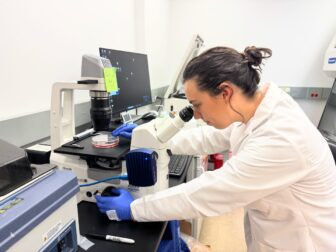Eleanor Agosta

Identifying a Novel Biomarker for Cervical Cancer Progression
Summary
While most human papillomavirus (HPV) infections resolve on their own, a small percentage can lead to cancers like cervical cancer. HPV is responsible for over 90% of cervical cancers. In HPV-related tumors, some genes are amplified, meaning that cancer cells have extra copies of those genes. These amplified genes are an important puzzle piece to understanding how HPV causes cancer. My project focuses on a highly amplified gene in cervical tumors, TP63, which can produce multiple versions, called isoforms, of its protein. I found that a subset of TP63 isoforms is highly expressed in cervical tumors, and I am testing whether introducing these isoforms into healthy cells makes them behave like cancer cells. This work could reveal a key mechanism of HPV-driven tumor development and lead to biomarkers that identify high-risk patients, enabling earlier and more targeted prevention strategies.
Watch a Q&A with Eleanor
I am honored to receive the PhRMA Foundation predoctoral fellowship. This award marks a pivotal step in my professional growth, enabling my work on biomarkers for cervical cancer progression while honing the skills I need to become a translational oncology researcher.

